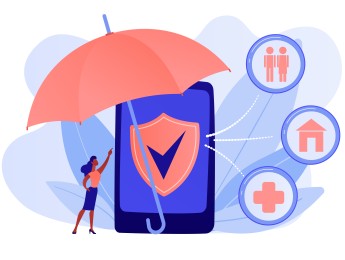In today's fast-paced business environment, characterised by rapid technological advancements and increasing reliance on digital solutions, a solid understanding of IT essentials has become indispensable for non-IT managers across diverse industries. Recognizing the significance of IT knowledge goes beyond merely navigating through spreadsheets or emails; it entails a comprehensive grasp of core concepts such as cybersecurity, data analytics, cloud computing, and emerging technologies like artificial intelligence and the Internet of Things (IoT).
Non-IT managers must understand how these elements intersect with their respective areas of expertise to make informed decisions that drive organisational success. Moreover, a foundational understanding of IT infrastructure, encompassing networks, hardware, and software systems, enables managers to effectively oversee implementing and maintaining technological solutions that support business operations and enhance productivity.
Familiarity with IT governance frameworks, compliance regulations, and data privacy laws is imperative for ensuring legal and ethical standards are upheld, mitigating risks, and safeguarding sensitive information. By staying abreast of IT essentials, non-IT managers can foster collaboration with IT teams, identify opportunities for innovation, and spearhead strategic initiatives that propel their organisations forward in today's digital age.
Upon completion of this course, participants will be able to:
- Appreciate the pivotal role of IT in project management.
- Explore a range of IT project management tools and their functionalities.
- Develop strategies to mitigate cybersecurity risks in IT projects.
- Strengthen skills in project planning and organisation for effective execution.
- Use project management methodologies to monitor and evaluate IT projects efficiently.
This course is designed for anyone responsible for managing projects within an organisation without specific IT knowledge or training. It would be most beneficial for:
- Business Owners
- Operations Managers
- Project Managers
- Risk Assessors
- Supervisors
- Team Leaders
- Business Analysts
- Product Owners
- Stakeholders
This course uses a variety of adult learning styles to aid full understanding and comprehension. Participants will review various IT systems to understand the importance of technology within an organisation and its role in project management.
They will watch videos and take part in interactive presentations to understand the implications of proper cybersecurity implementation and discuss in groups how the addition of specific IT tools and AI could contribute to data analysis and continuous improvement for an organisation.
Day 5 of each course is reserved for a Q&A session, which may occur off-site. For 10-day courses, this also applies to day 10
Section 1: The Varying Tools for IT Management
- Overview of IT management tool options.
- Introduction to essential IT management software.
- Understanding diverse tools for IT management.
- Exploring beginner-friendly IT management solutions.
- Basics of navigating IT management platforms.
Section 2: Cybersecurity Essentials
- Understanding threat landscape and attack vectors.
- Principles of encryption and cryptography.
- Network security basics.
- Web security and secure coding practices.
- Cyber hygiene and best practices.
- Incident response and management.
- Risk assessment and management in cybersecurity.
- Legal and ethical aspects of cybersecurity.
- Security awareness and training.
- Emerging technologies and trends in cybersecurity.
Section 3: Project Management Tools
- Utilising Gantt charts for project planning and tracking.
- Task management and collaboration tools.
- Resource allocation and scheduling software.
- Budgeting and expense-tracking applications.
- Risk management and issue-tracking platforms.
- Communication and team collaboration platforms.
- Reporting and analytics tools for project evaluation.
- Integrating project management tools with existing systems.
- Best practices for selecting and implementing project management software.
Section 4: Data Analytics & Utilising AI
- Exploring statistical analysis methods for data interpretation.
- Introduction to machine learning algorithms and models.
- Data visualisation techniques for insightful representation.
- Utilising AI for predictive analytics and forecasting.
- Implementing AI-driven decision-making processes.
- Ethical considerations in data analytics and AI applications.
- Hands-on exercises for practical application of analytics and AI techniques.
Section 5: Organisation & Motivation Using IT
- Utilising IT for task management and delegation.
- Implementing IT solutions for employee engagement.
- Strategies for fostering teamwork through IT platforms.
- IT-enabled performance tracking and feedback systems.
- Gamification techniques for motivation in the workplace.
- Leveraging IT for remote work and virtual collaboration.
- IT tools for fostering a culture of innovation and creativity.
Section 6: Implementing a Project Using IT Services
- Implementing IT service management frameworks like ITIL.
- Utilising project management software for task tracking and collaboration.
- Securing IT services and data throughout project implementation.
- Monitoring and evaluating project progress using IT analytics tools.
- Troubleshooting and resolving IT issues during project execution.
- Incorporating feedback loops for continuous improvement in IT project implementation.
Upon successful completion of this training course, delegates will be awarded a Holistique Training Certificate of Completion. For those who attend and complete the online training course, a Holistique Training e-Certificate will be provided.
Holistique Training Certificates are accredited by the British Assessment Council (BAC) and The CPD Certification Service (CPD), and are certified under ISO 9001, ISO 21001, and ISO 29993 standards.
CPD credits for this course are granted by our Certificates and will be reflected on the Holistique Training Certificate of Completion. In accordance with the standards of The CPD Certification Service, one CPD credit is awarded per hour of course attendance. A maximum of 50 CPD credits can be claimed for any single course we currently offer.
- Course Code PI1-126
- Course Format Classroom, Online,
- Duration 5 days














